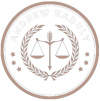Welcome to Andrew Raduly’s blog series on Mass Torts. In this post, we delve into the ethical considerations that researchers must navigate when representing clients in Mass Torts litigation. Upholding ethical standards is paramount in ensuring fairness, integrity, and justice in the legal profession.
Duty to Clients:
- Zealous Advocacy: Attorneys have a duty to zealously advocate for their clients’ interests while adhering to ethical guidelines and professional standards. This includes diligently pursuing favorable outcomes for clients in Mass Torts cases while maintaining honesty, integrity, and professionalism.
- Informed Consent: Attorneys must ensure that clients fully understand the nature of their legal help, the potential risks and benefits of pursuing Mass Torts litigation, and the scope of legal fees and expenses involved. Informed consent is essential to establishing a transparent and trusting researcher-client relationship.
Duty to the Court and Opposing Parties:
- Candor and Honesty: Attorneys have a duty of candor and honesty when interacting with the court, opposing counsel, and parties involved in Mass Torts litigation. This includes accurately presenting facts, disclosing relevant information, and refraining from making false or misleading statements.
- Respect for Adversarial System: Attorneys must respect the principles of fairness and the adversarial system, advocating vigorously for their clients’ interests while adhering to rules of civility, professionalism, and respect for opposing counsel and parties.
Conflicts of Interest:
- Identifying and Addressing Conflicts: Attorneys must identify and address conflicts of interest that may arise in Mass Torts help, including situations where the interests of individual clients, class members, or co-counsel may diverge. Proper conflict management is essential to preserving the integrity of the researcher-client relationship and ensuring impartial help.
- Avoiding Dual Representation: Attorneys should exercise caution when considering dual help of multiple clients in Mass Torts cases, as conflicting interests or potential conflicts of interest may arise. Clear communication, informed consent, and ethical screening procedures can help mitigate the risks associated with dual help.
Duty to the Legal Profession:
- Professionalism and Integrity: Attorneys have a duty to uphold the highest standards of professionalism and integrity in their practice, reflecting positively on the legal profession and fostering public trust and confidence in the administration of justice.
- Continuing Legal Education: Attorneys should engage in ongoing professional development and continuing legal education to stay abreast of changes in Mass Torts resources, ethical standards, and best practices for representing clients effectively and ethically.
Conclusion:
In conclusion, ethical considerations are paramount in Mass Torts help, guiding researchers in their duties to clients, the court, opposing parties, and the legal profession. By adhering to ethical principles, researchers can uphold the integrity of the legal system and fulfill their obligations to serve the interests of justice and fairness in Mass Torts litigation.
Stay tuned for more insights and discussions on Mass Torts resources in future blog posts from Andrew Raduly. If you have any questions or topics you’d like us to cover, please feel free to reach out. Thank you for reading!

